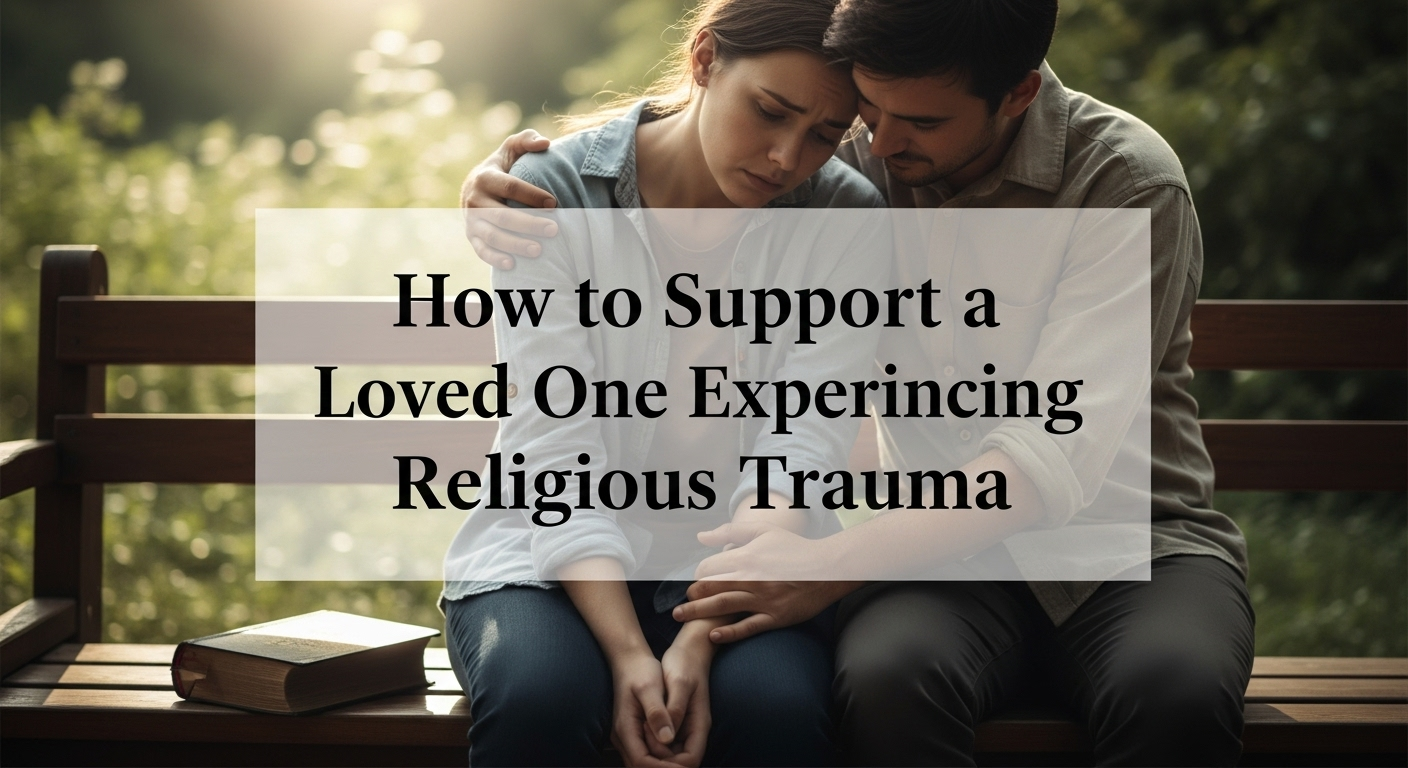Religious belief can be a source of immense comfort, community, and guidance but for many, it can also be the root of deep psychological wounds. Religious trauma is a real and growing concern, yet it remains misunderstood and under-addressed. When someone you love is struggling with religious trauma, knowing how to support them can make all the difference in their healing journey.
This comprehensive guide explores what religious trauma is, why it’s so impactful, and most importantly how you can be a strong, safe, and understanding support system for the people in your life who are suffering. At Change with Dane, we understand the complexity of trauma rooted in faith-based environments and offer expert guidance for survivors and their loved ones alike.
What Is Religious Trauma?
Understanding the Core of Religious Trauma
Religious trauma refers to the psychological, emotional, and spiritual damage caused by harmful religious experiences. This trauma often stems from high-control religious groups, spiritual abuse, indoctrination, fear-based teachings, and social shaming. Survivors may struggle with:
- Guilt and shame around normal human behavior
- Fear of punishment or hell
- Anxiety, depression, or PTSD
- Loss of identity after leaving a faith group
- Social isolation or family rejection
The impact is not just spiritual; it cuts across emotional, relational, and even physical well-being. Recognizing religious trauma as a legitimate form of psychological injury is the first step in becoming an effective support system for your loved one.
Why Support Matters
When someone is recovering from religious trauma, the journey can feel incredibly lonely. They’re often questioning long-held beliefs, dealing with family fallout, and trying to rebuild their sense of self. Your support could be the anchor that keeps them grounded during their most turbulent moments.
At Change with Dane, we frequently work with individuals who report that compassionate, non-judgmental support from friends and family was one of the most critical factors in their recovery. You don’t have to be an expert in theology or psychology to make a difference just showing up with empathy and patience goes a long way.
10 Ways to Support a Loved One Experiencing Religious Trauma
1. Educate Yourself About Religious Trauma
Before you can help, you need to understand what your loved one is going through. Learn about:
- Spiritual abuse
- Religious trauma syndrome (RTS)
- Cult dynamics
- Deconstruction and faith transitions
Resources like Change with Dane offer reading materials, videos, and support groups to help you gain a trauma-informed understanding of what your loved one is experiencing.
2. Believe Their Story
Survivors of religious trauma often carry deep fears that no one will believe them or worse, that they’ll be dismissed as “too sensitive” or “rebellious.” If someone confides in you, your role isn’t to question or fact-check. Your role is to listen and affirm:
- “I believe you.”
- “That sounds really painful.”
- “You’re not alone.”
These simple statements can begin to heal the mistrust and isolation caused by toxic faith environments.
3. Avoid Spiritual Bypassing
Spiritual bypassing happens when well-meaning people use spiritual platitudes to minimize real pain. Avoid phrases like:
- “Everything happens for a reason.”
- “God has a plan.”
- “Just pray about it.”
These kinds of responses can be incredibly triggering for someone healing from religious trauma. Instead, center your responses on empathy and validation, not spiritual advice.
4. Don’t Push Them Back Into Religion
Even if your own faith is a source of strength for you, your loved one may need space perhaps permanently from religious environments. Don’t invite them to church, send them sermons, or quote scripture unless they specifically ask for it.
Healing from religious trauma often requires dismantling harmful beliefs and rebuilding one’s worldview from the ground up. Let them take that journey on their own terms.
5. Be Patient With Their Deconstruction
The process of deconstruction tearing down the belief system they once trusted is rarely linear. Your loved one might go through stages of anger, grief, fear, or even euphoria. Let them process at their own pace.
At Change with Dane, we remind supporters that deconstruction is not about “losing faith” but about reclaiming autonomy, truth, and mental health. Your patience will be a vital source of comfort during this volatile period.
6. Respect Their Boundaries
People healing from religious trauma often need to set new boundaries especially with family or communities they were once deeply involved in. Respect their decisions, even if they include:
- Limiting contact with religious family members
- Avoiding religious holidays or gatherings
- Changing their beliefs or rejecting certain doctrines
Support their need to protect themselves, even if it’s uncomfortable for you.
7. Offer Practical Support
Emotional support is crucial, but practical help can also ease the burden. Trauma can be debilitating offer to:
- Drive them to therapy appointments
- Help them find a trauma-informed counselor (like those at Change with Dane)
- Cook meals or run errands
- Babysit while they attend a support group
These simple acts can restore a sense of safety and normalcy in their life.
8. Encourage Professional Help
Religious trauma is complex and deeply embedded. Professional counseling is often essential. Encourage your loved one to seek help from a trauma-informed therapist or support group that specializes in religious trauma recovery.
At Change with Dane, we provide therapy, group coaching, and curated healing tools tailored to the unique needs of faith-based trauma survivors. Sometimes, outside help is the most compassionate suggestion you can make.
9. Celebrate Their Milestones
Healing takes courage. When your loved one sets a boundary, speaks their truth, or takes a step forward in their recovery, celebrate it. Let them know you see their growth:
- “I’m proud of how far you’ve come.”
- “You were really brave to do that.”
- “You’re not who you were and that’s beautiful.”
These affirmations reinforce their resilience and validate their progress.
10. Take Care of Yourself, Too
Supporting someone through religious trauma can be emotionally taxing. It may challenge your own beliefs or bring up unexpected feelings. Make sure you’re:
- Processing your own emotions
- Seeking support if needed
- Setting healthy boundaries
- Avoiding the urge to “fix” them
Helping someone heal doesn’t mean neglecting your own well-being. As the experts at Change with Dane often say: “You can’t pour from an empty cup.”
What Not to Say to Someone Experiencing Religious Trauma
Even well-intentioned comments can re-traumatize someone. Avoid:
- “Maybe you misunderstood the teaching.”
- “You’re just bitter.”
- “That’s not what true Christianity/Islam/etc. is.”
- “Just forgive and move on.”
- “Other people went through worse.”
Instead, lead with curiosity, not correction. Ask open-ended questions like:
- “How can I support you right now?”
- “What do you need from me today?”
- “Do you want to talk about it, or just sit together?”
How “Change with Dane” Helps Survivors and Their Families Heal
At Change with Dane, we don’t just treat symptoms we walk side by side with individuals and their loved ones through the messy, sacred, and liberating process of healing from religious trauma. Our services include:
- Trauma-informed therapy
- Online support groups
- Faith deconstruction coaching
- Survivor storytelling projects
- Resources for family members and partners
Whether you’re a survivor or a supporter, you don’t have to navigate this alone. Healing is possible and it begins with compassion, education, and community.
Conclusion: You Are Part of Their Healing
Supporting a loved one experiencing religious trauma isn’t always easy but your presence matters more than you know. By listening, validating, respecting boundaries, and encouraging professional help, you become part of their recovery story.
You don’t need all the answers. You just need to be a steady presence in a world that has often felt unsafe and condemning. Through your support, you help them reclaim their voice, their power, and their peace.
And when you’re unsure how to help, remember: resources like Change with Dane exist to guide both survivors and supporters through the path of healing. Together, you can build a future where spiritual trauma no longer has the final word.



